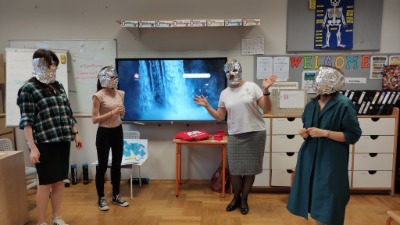The main topic of our TEMP’s activity is ‘STEAM in primary school’ – how to develop, implement and manage educational programs to meet the needs of students and teachers, with the involvement of scientists, professional staff and experts in many fields.
Together with our partners, during meetings and mentoring, we share good practices and knowledge to support each of our organizations. Thanks to the mentoring sessions, we will strengthen the potential of each partner in the area of supporting the education of students and teachers, as well as pay attention to the opportunities offered by intersectoral cooperation.
We focus on aspects such as creativity, Questions and Experiments Method, motivating teachers, and future competences. All this is based on the experience and specialization of each organization.
Our partnership with institutions from 4 different sectors and countries allows a very broad perspective.
What makes our approach innovative is the perspective in which the teacher is at the centre.
We are committed to supporting teachers in developing social competences, conducting lessons using project tools and design thinking methods, as well as paying attention to work life balance and their wellbeing.
Taking care of teachers allows you to change their attitude - conduct innovative STEAM classes and open up to new methods and ways of teaching, actively engaging students. Thanks to this, students can develop their potential and interests and the school implements the assumptions of the Open School.
Each of the partners has different unique experiences related to the development of STEAM competences, which is the greatest value of our TEMP. Thanks to joint mentoring sessions, we have the opportunity to exchange needs and experiences and use the acquired knowledge in our own countries.
Our main mission at Open School is to support teachers in strengthening competences and innovative teaching methods so that children can develop their passions and interests for better functioning in their future adult life.
“To foster children’s creative and intellectual potential to enable them to understand how to act in the surrounding world by following their talents, knowledge and possibilities.”

